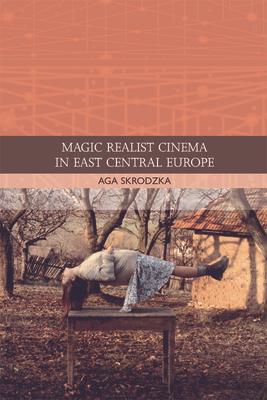Magic Realist Cinema in East Central Europe explores the interlocking complexities of two liminal concepts: magic realism and East Central Europe. Each is a fascinating hybrid that resonates with dominant currents in contemporary thought on transnationalism, globalisation and regionalism.
In this critical and comprehensive survey, Aga Skrodzka moves the current debate over magic realism's political impact from literary studies to film studies. Her close textual analysis of films by directors such as Jan Svankmajer, Jan Jakub Kolski, Martin Sulk, Ivo Trajkov, Dorota Kędzierzawska, Ildik Enyedi, Bla Tarr and Emir Kusturica is accompanied by an investigation of the socio-economic and political context in order to both study and popularise an important and unique tradition in world cinema. The directors' artistic achievements illuminate the connections between a particular aesthetics and the social structure of East Central Europe at a precise moment of contemporary history.

Magic Realist Cinema in East Central Europe explores the interlocking complexities of two liminal concepts: magic realism and East Central Europe. Each is a fascinating hybrid that resonates with dominant currents in contemporary thought on transnationalism, globalisation and regionalism.
In this critical and comprehensive survey, Aga Skrodzka moves the current debate over magic realism's political impact from literary studies to film studies. Her close textual analysis of films by directors such as Jan Svankmajer, Jan Jakub Kolski, Martin Sulk, Ivo Trajkov, Dorota Kędzierzawska, Ildik Enyedi, Bla Tarr and Emir Kusturica is accompanied by an investigation of the socio-economic and political context in order to both study and popularise an important and unique tradition in world cinema. The directors' artistic achievements illuminate the connections between a particular aesthetics and the social structure of East Central Europe at a precise moment of contemporary history.